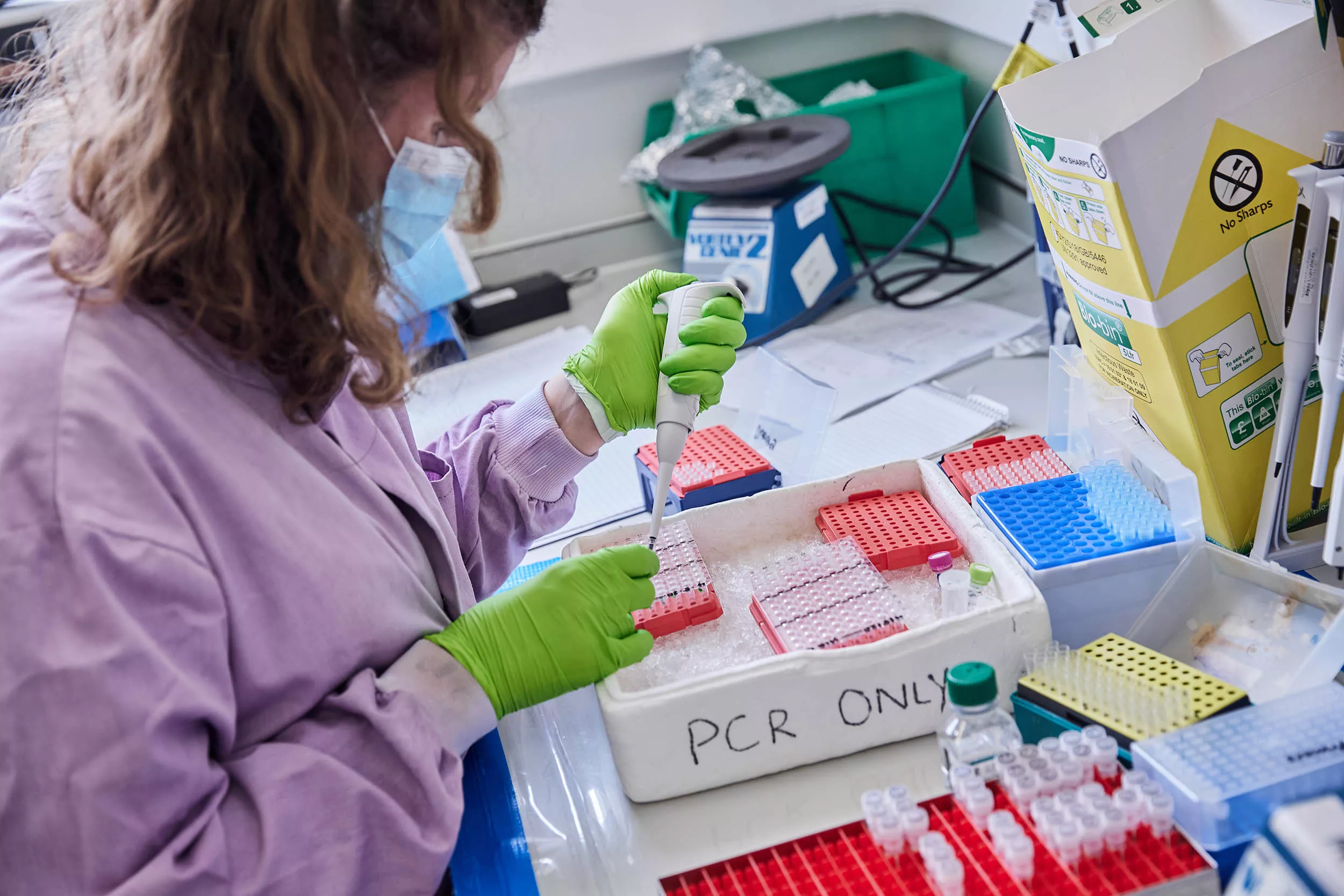
Our researchers have discovered a gene that plays a critical role in preventing the immune system from attacking the pancreas in type 1 diabetes. The findings pave the way to new treatments that target the gene to slow or prevent the condition.
The gene’s importance in type 1 diabetes came to light when researchers found two siblings in Morrocco, who are the only people in the world known to have a unique version of the gene.
The siblings developed type 1 diabetes when they were newborn babies. It’s very rare to develop type 1 diabetes before the age of six months. So, researchers at the University of Exeter analysed the siblings' DNA to find out if there were any clues that could explain why their immune system launched an attack on the pancreas so early on.
They found the siblings had a unique version of the gene which makes a protein, called PD-L1. Their gene didn't work right, which meant their PD-L1 protein wasn't doing its job properly. The researchers realised that this could be responsible for the siblings' very early-onset type 1 diabetes.
Until now scientists have only been able to study what happens when PD-L1 isn’t working in animals, and haven’t understood how it’s linked to the immune system in people.
Diabetes UK-funded researcher, Dr Matthew Johnson from the University of Exeter, who led the study explained:
“PD-L1 has been particularly well studied in animals because of its crucial function in sending a stop signal to the immune system. But, to our knowledge, nobody has ever found humans with a mutation in the gene encoding PD-L1.
"We searched the globe, looking at all the large-scale datasets that we know of, and we haven’t been able to find another family. These siblings therefore provide us with a unique and incredibly important opportunity to investigate what happens when this gene is disabled in humans.”
Surprisingly, the team found that the siblings' immune system overall was working just as it should. This suggests that PD-L1 only affects the very specific parts of the immune system at the root of type 1 diabetes, and has a critical job in stopping the condition from developing.
This new knowledge opens doors for scientists to develop treatments that boost PD-L1 with the hope of preventing type 1 diabetes.
Diabetes UK-funded researcher Professor Timothy Tree, from King’s College London, said:
“Through studying this one set of siblings – unique in the world to our knowledge – we have found that the PD-L1 gene is essential for avoiding autoimmune diabetes, but is not essential for everyday immune function.
“This finding increases our knowledge of how autoimmune forms of diabetes such as type 1 diabetes develop. It opens up a new potential target for treatments that could prevent type 1 diabetes in the future.
“Reducing PD-L1 is already effective for cancer treatment, and boosting it is now being investigated as a type 1 diabetes treatment – our findings will help accelerate the search for new and better drugs.”
Researchers now plan to study the role of PD-L1 in the pancreas in more detail to unravel exactly why it is so vital for preventing the immune system from destroying insulin-making cells.
Dr Lucy Chambers, Head of Research Communications at Diabetes UK, said:
“Pioneering treatments that alter the behaviour of the immune system to hold off its attack on the pancreas are already advancing type 1 diabetes treatment in the USA, and are awaiting approval here in the UK.
“By zeroing in on the precise role of an important player in the type 1 diabetes immune attack, this exciting discovery could pave the way for treatments that are more effective, more targeted and more transformational for people with or at risk of type 1 diabetes.”
This research was published in the Journal of Experimental Medicine and was funded by Diabetes UK, the NIHR, Wellcome, The Leona M. and Harry B. Helmsley Charitable Trust, and the US National Institutes for Health.
